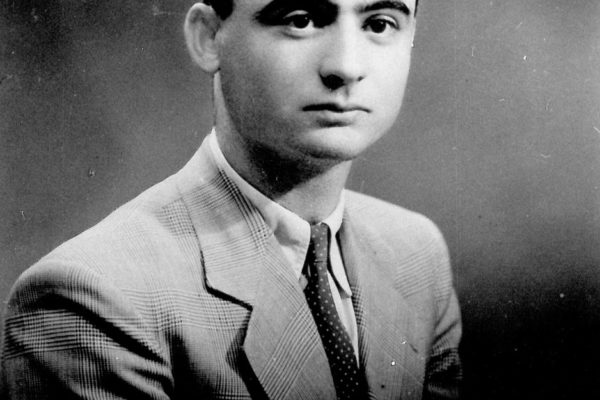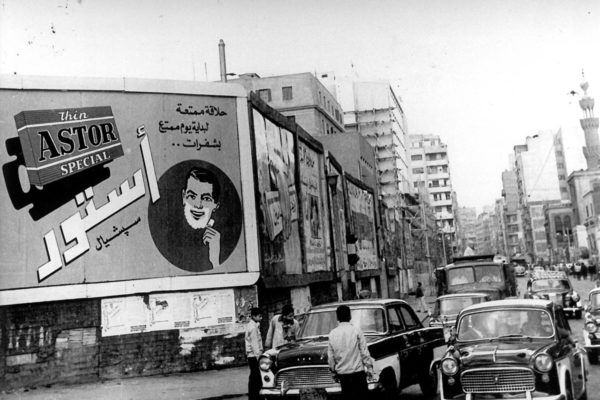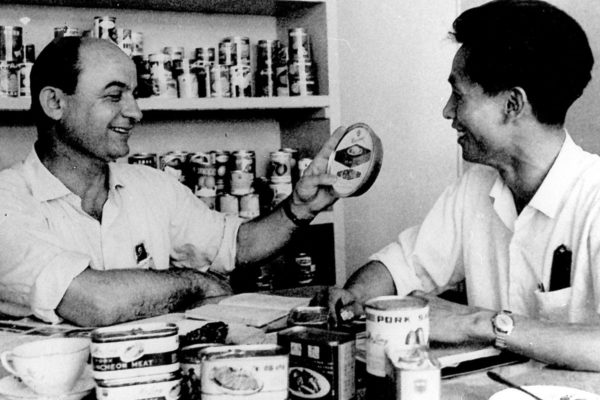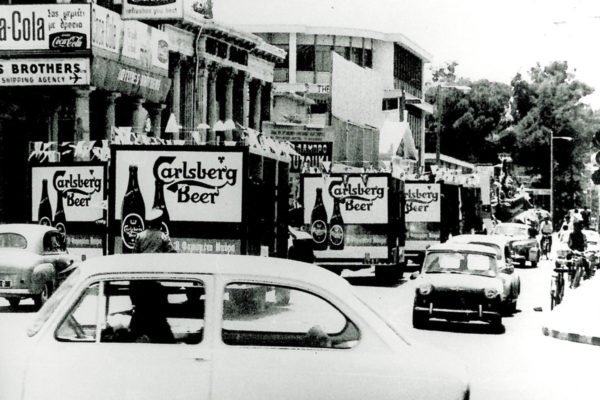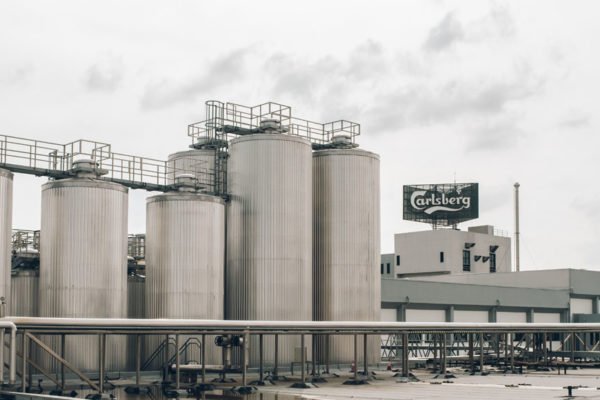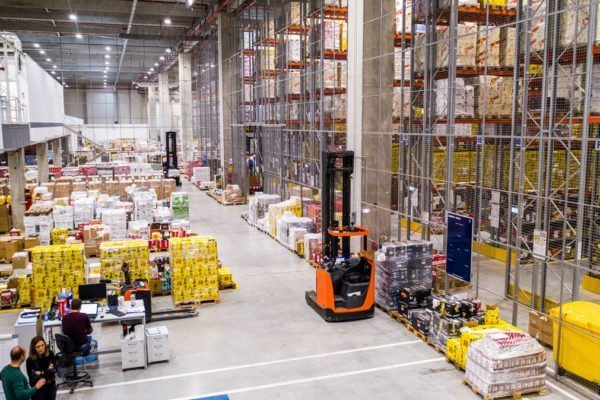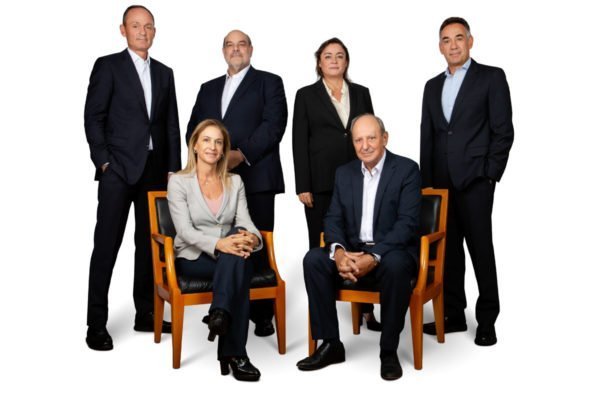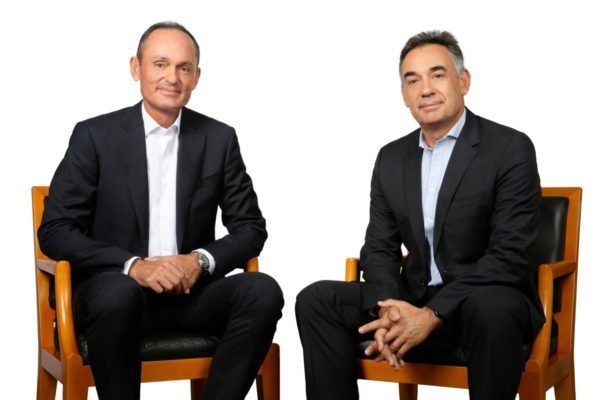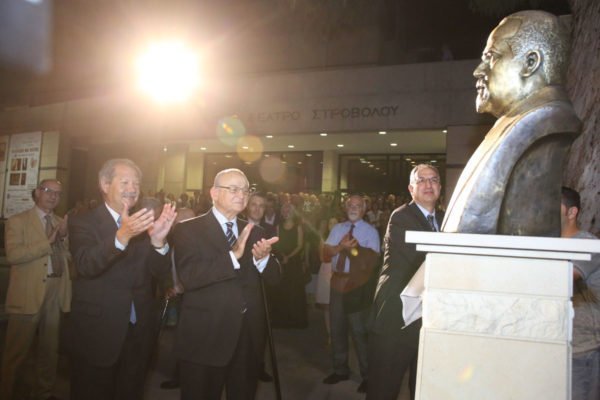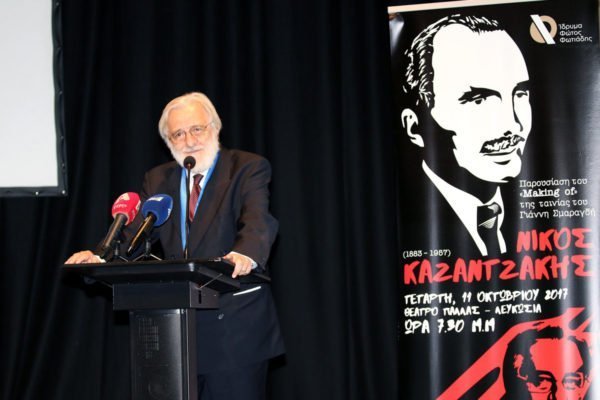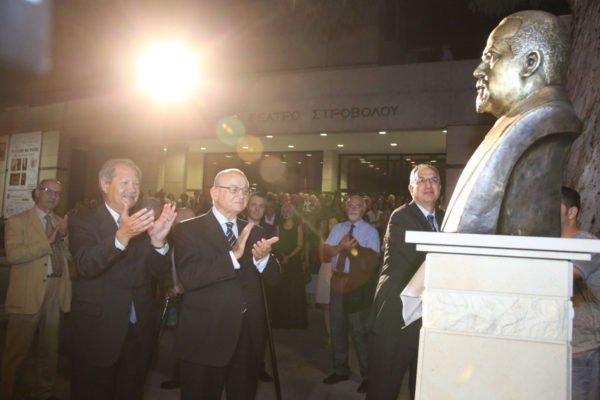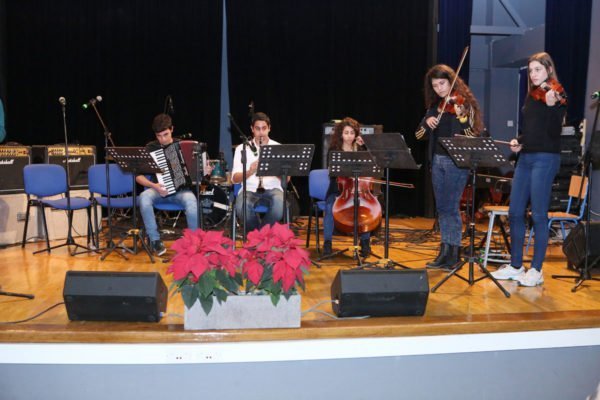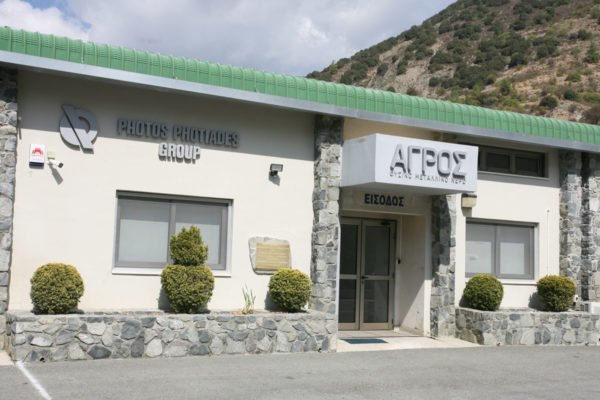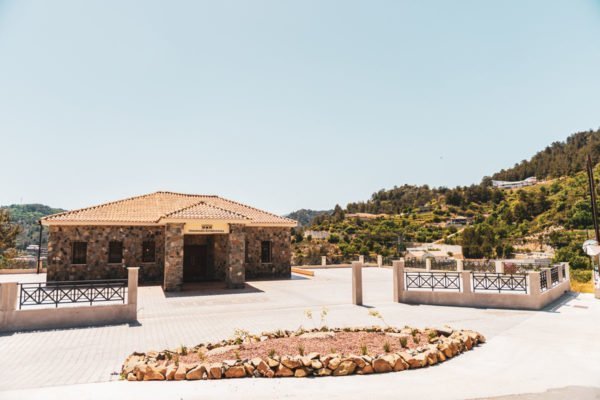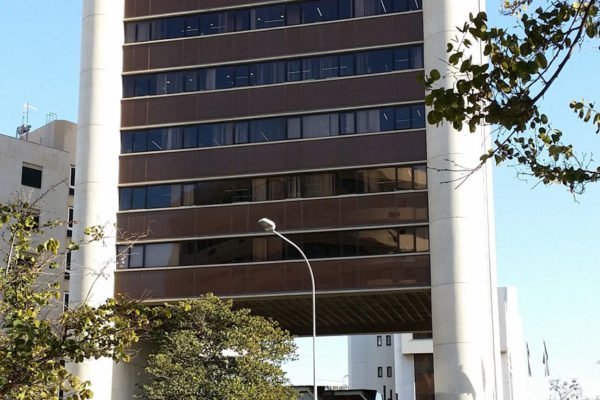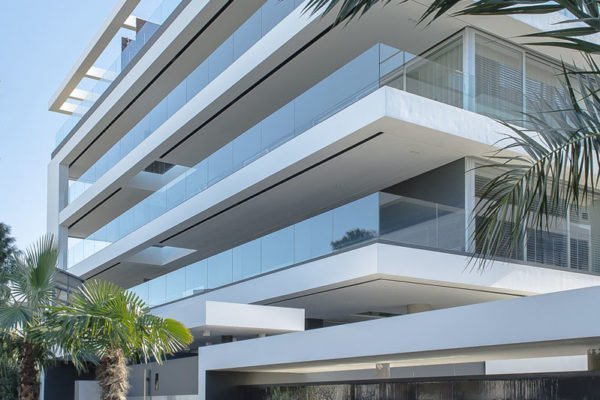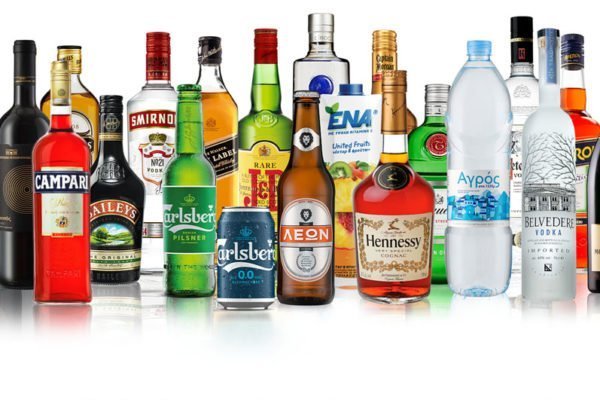

A dynamically
growing organisation
Spanning for almost eight decades, the Photos Photiades Group has always been an extrovert business and an innovative organisation, rewarded over time for that dynamism and social contribution.
Legendary founder, historical contribution
Spanning for almost eight decades, the Photos Photiades Group has always been an extrovert business and an innovative organisation, rewarded over time for that dynamism and social contribution.
Marking a steadfastly upward course, the Group has managed to expand beyond Cyprus and develop itself into an international Cyprus business ambassador. It has become one of the fastest developing Cypriot business organisation.
Founder Photos Ia. Photiades
The Group’s rich and multi-faceted history was launched in 1942, in the midst of WW2, with the establishment of Photos Photiades & Co Ltd by the dearly departed Photos.Ia.Photiades, a charismatic personality and leader, described by many as the ‘Patriarch of Cyprus Business’ and ‘Α true Gentleman and Patriot’.
Born in Angastina in the Famagusta district, on October 25, 1920, Photiades grew up in a family of ten and was lucky enough to have wonderfully loving and caring parents, Hadjicoumis Photios Photiades and Mariettou Hadjicoumis. He always fondly and proudly referred to them, wherever the occasion arose.
Education wise, Photiades graduated from the Pancyprian Gymnasium in 1939 and that same year he duly accepted a teacher’s post at the Famagusta English High School (1939-1941) where he taught Ancient and Modern Greek, History and Physical Education. As of 1940 he also took up an English teacher’s post at the Lefkonikon Gymnasium.
Good experience as it may have been, a teacher’s job has quite a deviation from the Photiades goals. In the summer of 1941 he secured an Assistant Base Engineer Officer’s position at the British Admiralty, also becoming the Admiral’s Assistant for a king’s salary at the time, a monthly total of 18 pounds.
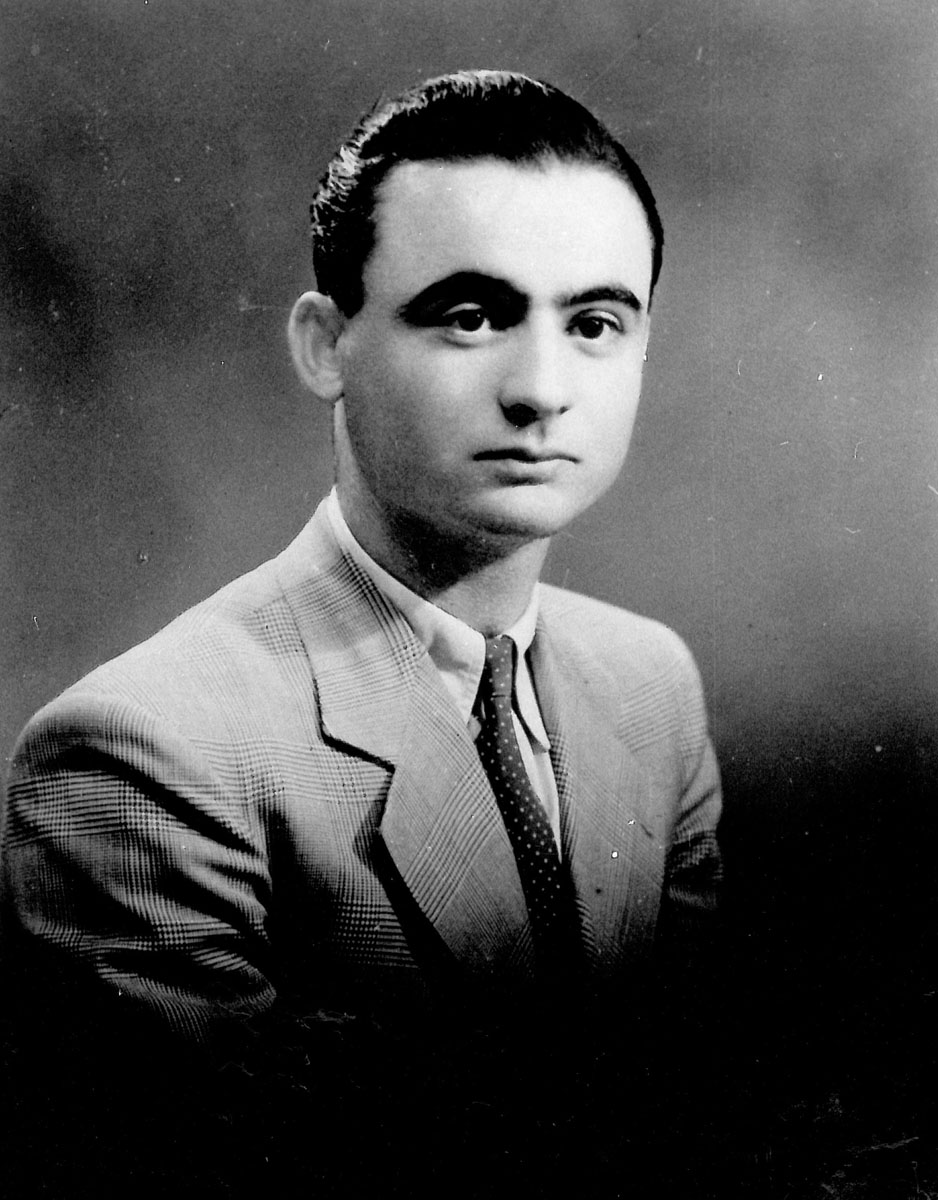
The founder of the Group, late Photos.Ia.Photiades.
Photiades began his businesses from scratch in 1942, in the midst of the 2nd World War and a social reality of poverty and deprivation in Cyprus.
This did not take away from the boundless energy of the young business entrepreneur, who came up with solutions for the tough war circumstances he had to deal with, in building his business. For example, to cover war shortages in raw materials, he forged a number of artisanal enterprises, offering quality products that were met with great reception from consumers.
A friendship that proved valuable in the Photiades future professional growth was the captain of the Fouad, the only ship that approached Cyprus during the war, on a weekly basis, carrying the overseas mail. They met in 1939 and four years later, he appealed to that friendship to ask the captain if he could carry his goods from Alexandria, Port Said, Haifa and Beirut.
His artisanal enterprises and the imports that followed, soon led to a customer surge and the business developed an advantage against the much larger trading houses of the time, bringing in corresponding profits. This was an income which formed the basis for the future, rapid evolvement of its business.
The customs office encouraged this import trade, as it brought in significant duties that it had gone without for years.
With the end of the war and utilising his knowledge of regional products, Photiades developed extensive trading links with the Middle East and was virtually the first Cypriot to do business with countries in the area.
As he often admitted to himself, he had the time to devote to this sector, as his two brothers Takis and Kikos always had his back, running the Cyprus business side of things.
In 1947 he opened up the first trade office in Alexandria, followed next year by Beirut and Athens in 1949. He exported agricultural and industrial products, such as carobs, raisins, wine and nuts to the Middle East and Africa.
More than a decade later and following Cyprus independence, the company further expanded its trading activity to the eastern bloc, as well as China where he secured exclusive representation for all its products in Greece and Cyprus, based on a barter deal.
During those establishing and expansion years, the outstanding development was securing the exclusive global representation of the ASTOR Greek shaving blades, owned by his close friend Adam Politis.
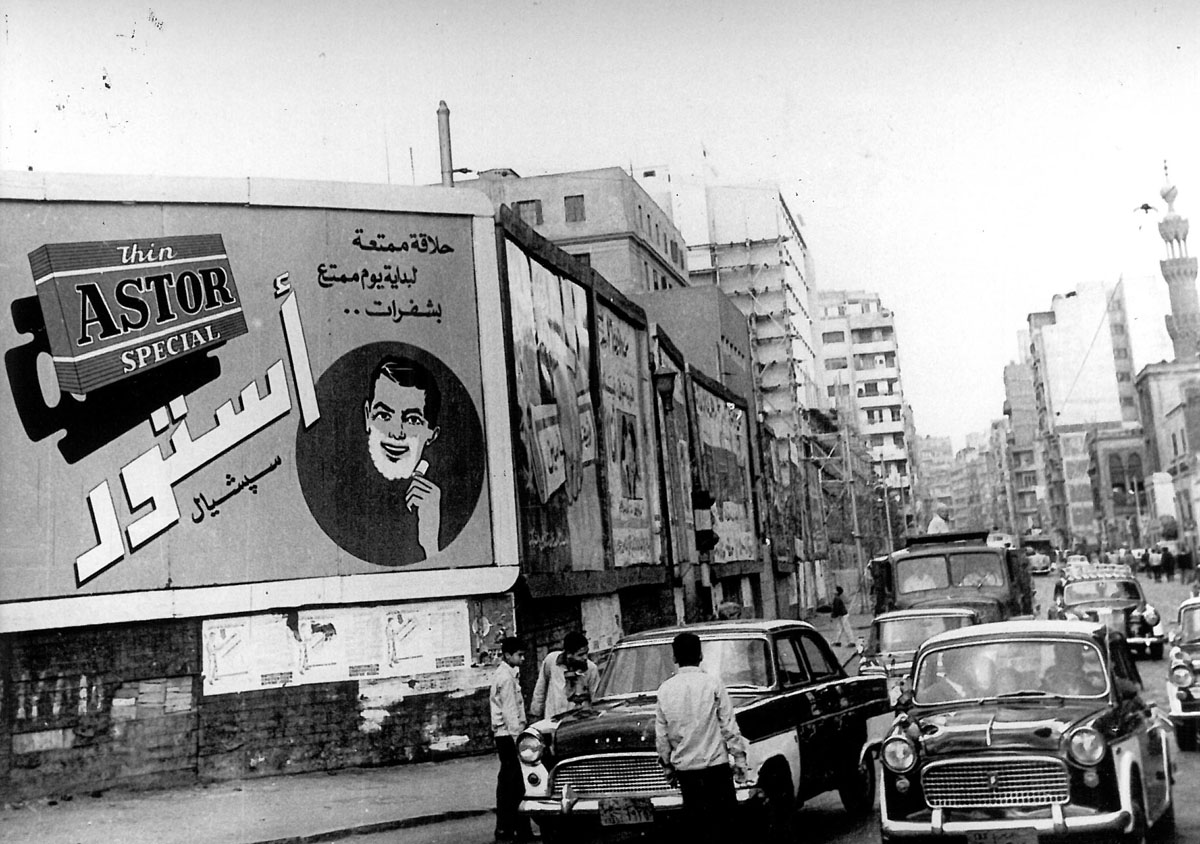
From the outset of his ventures, Photos Photiades was always looking beyond Cyprus for business opportunities. Amongst other successes, he became exclusive global distributor of the ASTOR Greek shaving blades (1964).
What set up Photiades for the 60s, was the foresight that the British would offer up some form of independence to Cyprus, so in 1960, he begun looking into the country’s industrial needs. He eventually thinned down his list to two options, prepared the necessary studied and was the first and only businessman to submit applications on August 2nd 1960, for building a cement factory and a brewery. Authorities rejected his brewery license application, so he proceeded with the purchase of the Platanis brewery, an existing establishment, making it easier to acquire the license.
Carlsberg Cyprus and Carlsberg beer globalization
Securing the Carlsberg brand was not an easy task. After no less than five years of tough negotiations with Carlsberg Denmark, Photiades secured the first license to produce the beer outside the Scandinavian country, a great success. And the shrewd Cypriot convinced them with the following phrase, which duly concluded his final study;
‘You have the chance to turn Carlsberg into the Coca Cola of beers on a global scale. Otherwise one of your competitors will do it and the train will be out of the station by then’.
That clinched the agreement and ever since then, Carlsberg beer has been travelling everywhere across the planet, a truly international beer. This virtually brought about a new era in the history of beer and beer making in Cyprus and beyond.
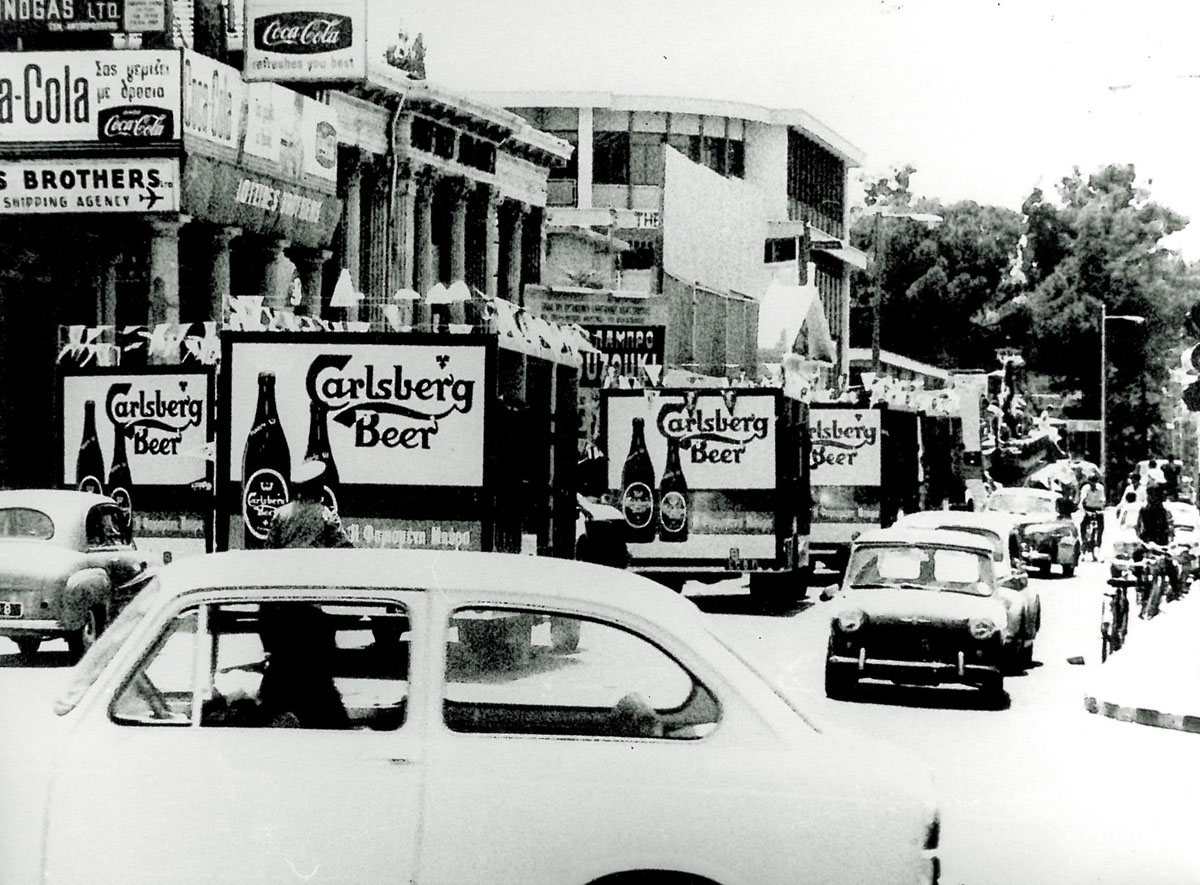
Carlsberg Cyprus production and distribution (1969).
As a token of appreciation to Photos.Ia.Photiades for his tremendous contribution in building strong bonds of friendship between Denmark and Cyprus, the Danish government honoured him not once, but twice. In 2013 he received an honorary distinction by the Lady Ambassador of Denmark in Cyprus Kirsten Geelan, at a special ceremony, with a similar event taking place in 2017, when he was honoured by Ambassador Michel Braad and Carlsberg Denmark CEO Cees ’t Hart, at a Group anniversary gathering.
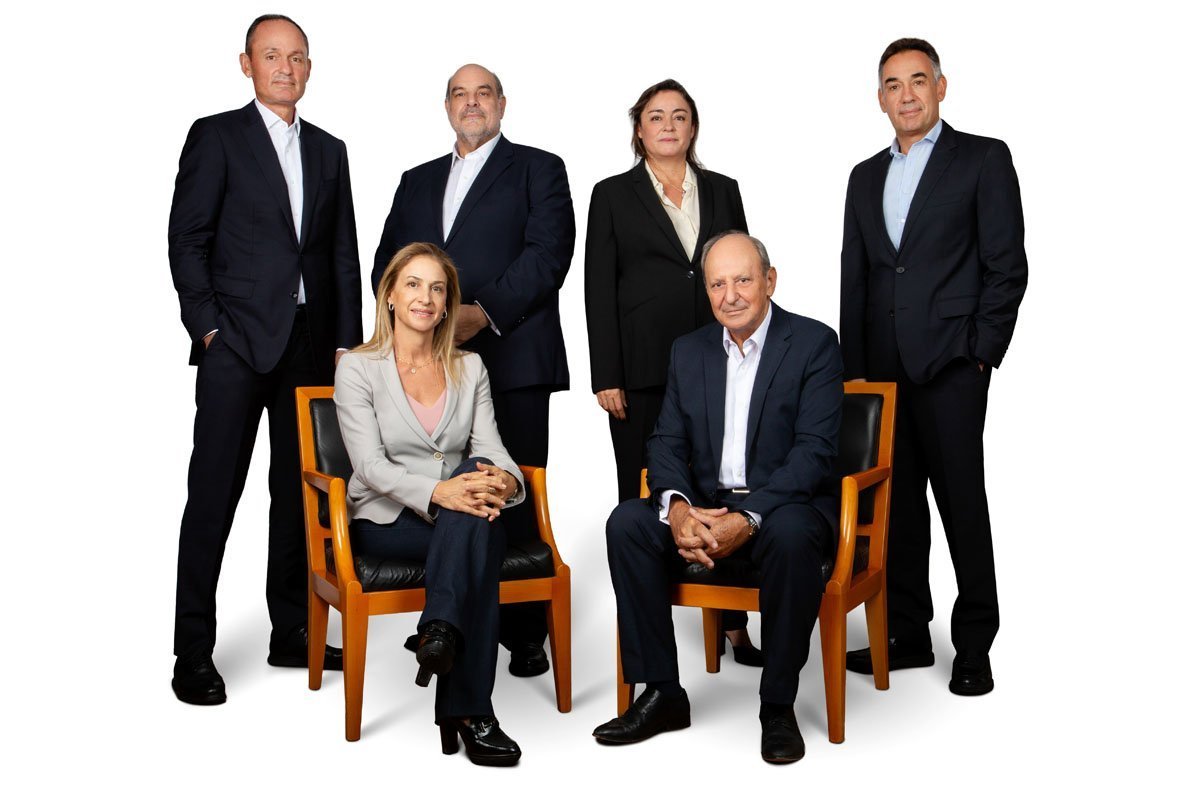
The Photiades Group Executive Board. Standing are Alexis Photiades, Constandinos Dekatris, Carolina Photiades and Pavlos Photiades. Sitting are Ilona Photiadou Michaelidou and Andreas Christofides.
Modern times
The 2nd generation takes over the Group in 1990-Pavlos Photiades that same year and Alexis Photiades two years later.
Under their guidance, spearheaded by a targeted strategy and a tireless will to grow, the Group further expanded its business horizons, working through subsidiaries to join the real estate sector as well as Life and Health Insurance.
It forged an extensive network of international synergies, requiring quite a demanding work ethic and duly became recognised as one of the leading and most reliable associate of international brands, such as Carlsberg, Diageo, Danone, Gruppo Campari, Moet Hennessy, Jose Cuervo, Osotspa, Lanson, Lavazza, the AXA insurance giant and many others.
The Group holds a leading position in the beverages production, bottling and trading sector, as well as land development and insurance, successfully operating in Cyprus, Greece, Romania, Croatia and Slovenia.
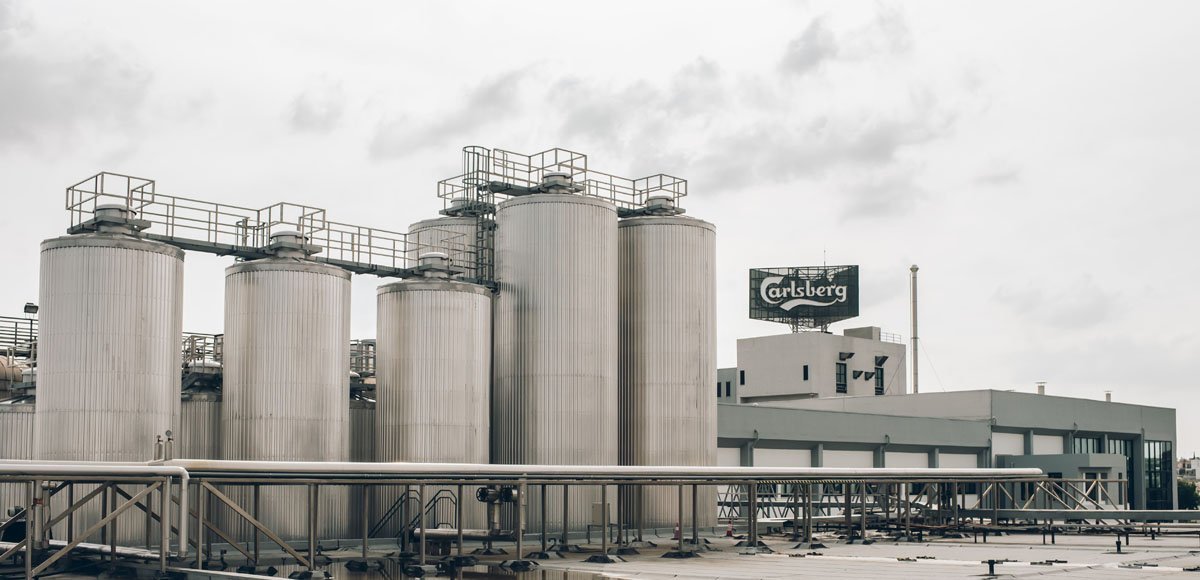
Τhe modern brewery of Photos Photiades Breweries.
1100 professionals currently work at the Photos Photiades Group, one of the largest private sector employers in Cyprus. The Group realises that personnel are its most valuable asset for development, so it systematically invests in their further training and growth.
In a tough business environment, the Group continues to stand out for its innovation, strongly supported by long term strategic planning, attracting and developing brilliant executives, forging long term synergies, flexibility in changing circumstances and adherence to quality, the highest international standards and front line technology.
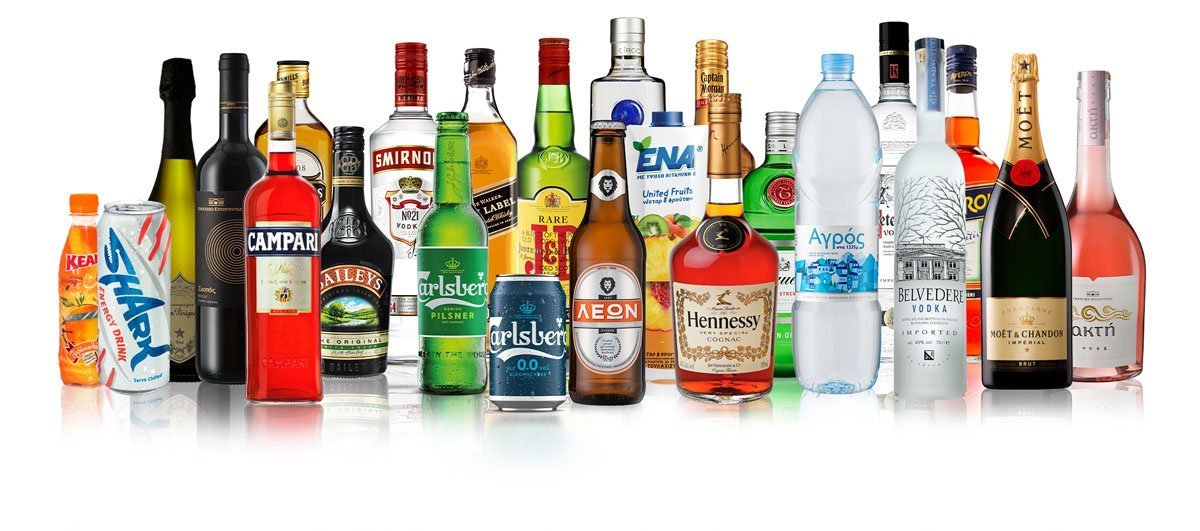
Portfolio of the Group’s top brands in Cyprus.
But most of all, investing in people.
Landmarks
- 1942 Photos.Ia.Photiades establishes Photos Photiades & Co Ltd.
- 1947-1949 The company opens offices and warehouses in Alexandria, Beirut and Athens.
- 1961 Acquisition of ‘Thea Υgeia’, the first water bottling company (Moutoullas water).
- 1963 The Group buys out the majority share in M.Chr.Platanis Co, owner of the ‘Leon’ brewery.
- 1964 Securing the exclusive representation of Chinese products in Cyprus and Greece.
- 1964 The company secures the global exclusive representation of Greek shaving blades ASTOR.
- 1965 Acquisition of the Fontana Amorosa Coast Ltd farm.
- 1967 Signing of agreement with Carlsberg Denmark.
- 1990 The 2nd generation takes over. Pavlos Photiades in 1990 and Alexis Photiades in 1992.
- 1991 Acquisition of the Blue Sky bottling company from the Agros community.
- 1992 Establishment of the ‘Photos Photiades’ public benefit, scientific and cultural Foundation.
- 1996 The ‘Photos Photiades’ foundation creates the first Natural History Museum in Cyprus.
- 1997 The Group goes into the juice market with the launching of ENA.
- 1998 Establishment of Photos Photiades Distributors (PPD) and development of cooperation with Diageo, Shark, Boutari, Corona, Jose Cuervo, Moet Hennessy, Gruppo Campari, KEAN, Ilva Saronno, Magners, Groupe Danone, Nestle Waters and many other companies.
- 1998 Agros natural mineral water is launched.
- 2000 Opening of Kyperounta winery.
- 2002 Establishment of the first land development company in Cyprus and start of construction on its first residential project, the Carolina Park.
- 2004 Creation of the Beverage World in Greece and launching of a long successful growth on the Greek market, with international cooperation.
- 2007-2012 PPD launched in Romania, Croatia and Slovenia, in cooperation with international giants Diageo, Gruppo Campari, Ilva Saronno, Proximo and others
- 2007 Universal Life, the first insurance company to be established in Cyprus, joins the Group.
- 2009 Emerald Developments begins construction of its first project in Athens and moves with the preparation and architectural study of new residential and tourist projects in Greece.
- 2019 The Group goes into the coffee business, launching cooperation with Lavazza on the Greek market.
- 2019 Completion of the investment plan and full automisation of the Photos Photiades Breweries facility, which became one of the most modern in the world.
- 2021 Production and launching of Carlsberg 0.0, the first alcohol-free beer in Cyprus.
- 2021 LEON beer is re-launched with Cypriot grown hops, cultivated for the first time by the Kyperounta winery, with the latest know how.
- 2021 PPD Croatia joins the coffee business, launching cooperation with the Illy Group.
A dynamically growing organisation
- Life is a movie of opportunities
- Progress and evolution is our philosophy
Soon to celebrate 80 years of life, the Photos Photiades Group was established in 1942 by no less than a business legend, Photos.Ia.Photiades. Throughout this time, it has kept growing and expanded beyond Cyprus, to build a name for itself as one of the most dynamically evolving business organisations. CEOs Pavlos and Alexis Photiades share their view on today’s realities and tomorrow’s prospects.
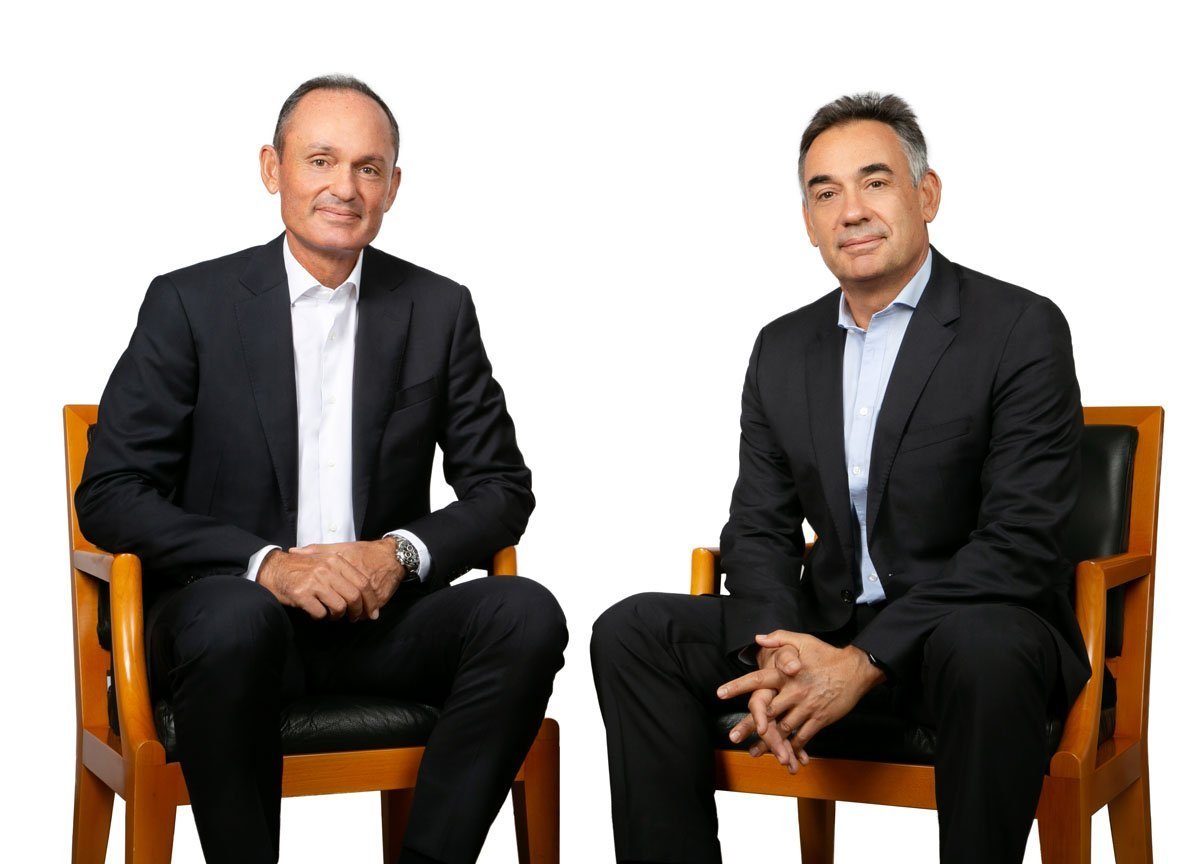
The Group’s CEOs Alexis and Pavlos Photiades.
Responsibility
You’re the offspring of a business legend. What’s it like sitting in his place?
P.P: It’s been three decades since we took over, so it’s not really something new. But to be sure, there is a massive heritage to be talked about and we do feel the weight of responsibility in continuing the organisation’s success. First and foremost, we carry a responsibility towards our personnel, more than 1100 families that have virtually connected their lives with our own, they depend on us. There’s also the social responsibility aspect but we also work for the younger generations. It’s also really important that we improve what our father left us and pass it on to the family’s next generation. Beyond that though, the weight of the responsibility also leaves us with a lot of positives. We feel so happy to be heading an organisation that is constantly evolving, as our father was.

The founder of the Group, late Photos.Ia.Photiades.
Constant progress and development
The Group’s DNA has been largely defined by your father.
Al.Photiades: Our father was quite the intense personality, with his own life philosophy that he instilled in us, not just in theory but through his own actions. The main aspect of his philosophy was always striving for progress and growth. Never compromising, always looking towards improving himself, utilising what’s new and progressive, being persistent, but also patient. But the most substantial element of this constant self-development was evolution, and that’s the reason we invest in personnel and their continued training and development. It’s actually the most important aspect of this organisation and its philosophy. 20 years on, it’s obvious that the DNA has evolved, but its core hasn’t changed; constant improvement and progress.
What has stayed with you from what your father said or did?
P.P: Quite a few things, some of them forging part of the organisations’ culture and principles. But adding to what Alexis said, in spite the evolution of the Group, the organisations’ core DNA has all the characteristics of its founder, Photos Photiades. What’s certain is that both our personalities as leaders of the organisation for the past 30 years, affected the Group and contributed to its development, philosophy and culture, but the fundamental principles have not changed. Every family-based business carries basic elements of the family’s principles, culture and DNA.
And this is where my mother comes in. The way she raised her family, her values, principles and philosophy of life, definitely played a part. The principles of a family business are surely defined by the family’s own personal lives. This is only to be expected in such a business, whether you like it or not.
Our mother
What part did your mother play in her husbands’ business history?
P.P: She played a vital role, and I am not just referring to that stereotypical expression, oh, she was there to support him. She actually had a substantial part in the values and principles that our organisation is built on.
She wasn’t directly involved in any business decisions, but when it came to the organisations’ culture, she absolutely had an effect both on our father and ourselves, with the way she raised us.
Weeding
When was your first contact with the company? Did your father bring you to the factory? You probably grew alongside the organisation.
Al.P: We could surely put it that way. The line separating business and family was quite blurred to our father, as they virtually went hand in hand, they were interconnected.
P.P: I was 13 when I took my first job at the restaurant. It was summertime I remember and we were responsible for weeding the garden here at the factory, when the Carlsberg festival would take place.

Carlsberg Cyprus production and distribution (1969).
Αdaptability is key
The Group enjoys a leading position in the production, bottling and trading of beverages, land development and insurance. It has also expanded to Cyprus, Greece, Romania, Croatia and Slovenia. What’s it like heading out such a large Group and what’s the secret to leadership?
Αλ.Φ.: Pavlos told you earlier about how one feels in this position. It’s such a responsibility, as you are virtually deciding on the future of so many families. Someone leading such a major business, more so in today’s market conditions, when everything’s changing so fast, needs quick thinking and progressive executives by his side. It’s also important that decisions are reached collectively and the organisation always is looking ahead, predicts and not follows developments, adapting to the realities at any time. This might be the most crucial aspects in the survival of a company. We witness companies shrinking or even collapsing on a daily basis, if they’re unable to adapt to new conditions.

A modern warehouse and product distribution centre in Romania.
P.P: Adding to that, I have to say that every day is different, with new challenges, when you’re dealing with so many activities in so many countries and sectors. It’s definitely not boring, let’s put it that way.
Landmarks
The most important and defining moment?
P.P: It’s not just a moment. It’s a multitude of things, tied together.
Al.P: To start, I would say it was the very establishment of the company in 1942 and once that was on the road, the opening of the brewery and securing the license to produce Carlsberg outside Denmark, the first globally. The company’s land acquisitions over time also proved valuable, and by that, I mean investing in property and land development. What also had a positive effect is the fact that Photos Photiades decided to step down as director of the Group relatively early at 67 and delegate responsibility in the Group. That was a bold move, not often a characteristic of family businesses. Of real significance was also a dynamic move into the distributors’ sector, with the creation of Photos Photiades Distributors in 1998. The Group boasts a strong presence in four countries today and that was also a major step, not to mention, the acquisition of Universal Life, quite the move for the Group into a new sector. Generally speaking, expanding activities abroad at various stages of development was vital, I would say.
«A movie of opportunities»
What advice did your father give you about how to behave, and make decisions, both before and after you took over?
P.P: Life is a movie of opportunities, that’s what he used to say. The real ask is to be able to actually recognise and grab hold of them. On the other hand however he said that your reach must be as long as your hand. What he really meant is that you should take chances, but not over extend the risk and sink under if something goes wrong.
Al.P: My father did fail in a lot of business ventures. But none was risky enough to take him under, though he was a man known to take risks. He never rejected anything new without considering and discussing it, he would actually really look into it. And another thing; routine was a foreign concept to him. He always wanted to create, study and move on to the next project. That’s why he never took the role of CEO in any of the Group’s companies. When he founded the brewery, he appointed a General Director from the very first day. He wanted to just move on, push forward to the next venture. That thirst for creativity was his most important asset.
The Carlsberg license story
What story or incident has stayed with you, narrated or personal?
P.P: For me it will have to be the actual negotiations to secure the license to produce Carlsberg in Cyprus. For five long years my father was striving to convince either Carlsberg or Tuborg, the biggest beer industries in Denmark at the time. They were different entities back then, merging into the same Group at a later stage. Photos Photiades was met with constant, plain refusal; no, no, no, no. But he never gave up on the venture, he kept pushing. Danish breweries at that time had a deal of not allowing lager production know how to leave Denmark, in order to protect jobs in the country. My father needed to convince them that this policy was wrong and indeed managed to do so, after a great deal of effort, which is an amazing story in itself, we could talk for hours about it. He made them realise that giving up the production know how would first serve their own interest, as they would actually be left behind future developments if they did not start investing abroad. Cyprus was the first stop in Carlsberg’s international path. That’s why our country, in spite of its size, has a special place in their history and hearts.
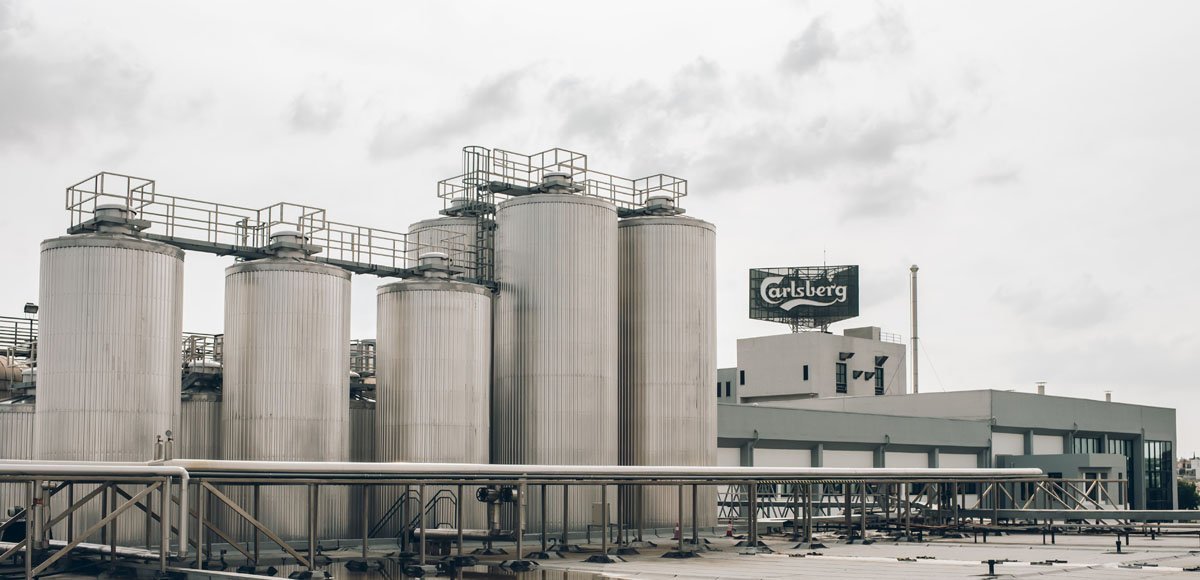
Τhe modern brewery of Photos Photiades Breweries.
Any story or incident connected to the Carlsberg effort that we could talk about?
P.P.: Yes, it’s about the way my father managed to convince the Danes to grant the license of producing Carlsberg in Cyprus. Back then, communication was conducted through letters and in one of the long letters that they exchanged, my father phrased it this way; ‘You have the opportunity of turning Carlsberg into the Coca Cola of beers. If you don’t do it, then someone else will and the train will have left the station by then’.
Many years later, A.C.Nielsen, the head of Carlsberg Denmark at the time, told my father that this very phrase made him reconsider and ultimately propose changing the Carlsberg policy and granting a production license to Photos Photiades in Cyprus, the first such license globally.
Seeking opportunities
Will you be investing post-crisis? Any acquisitions in mind, looking for opportunities?
P.P: One of the most important principles of the Group is that any company which stops expanding, is doomed to failure.
Al.P: During the pandemic experience over the past 1.5 years, and beyond our initial reaction to protect personnel and the Group’s liquidity and profitability, we moved towards seeking new opportunities. You always need to be aware of the changes around you, spot the investment opportunity. We think that the need for mergers and synergies will remain with us and increasingly so. We can’t be certain what shape they will take, cooperation, acquisition, merger, or a combination of these three directions. It depends on the merits of each case. But to be sure, in small scale economies such as Cyprus, each company is virtually obliged to seek out synergies, in order to develop.
Staying in touch with the people
Corporate social responsibility. What do you understand by it?
P.P: It goes hand in hand with the values of our family and our organisation. The work and contribution of the Photos Photiades Foundation is widely known. But beyond that, giving back to society, is part of the early values that existed much before the establishment of our organisation, long before the term ‘corporate social responsibility’ was ever coined. There was a declared philosophy on the practical obligation of every company, more so, major Groups, to give back to society and support it in many different ways. After all, consumers are part of society, they are the ones it benefits from, which its own future depends.
Al.P: A few years before the Turkish invasion, on June 21st 1970, the first anniversary of the Carlsberg brewery in Cyprus, the first ten newborns were adopted by our group and named ‘The Ten Lucky Children of Carlsberg.’ The company took up their christening, an annual gift and their education expenses, right up to University level.
In addition, following the invasion, the Carlsberg Festival returned, but it was now dedicated to the Cypriot Refugee Woman. All proceeds went to the ‘Cypriot Refugee Woman Carlsberg Foundation’ through which 20 poor and orphaned girls received annual financial support.
Social contribution has been part of the Group’s philosophy since its establishment and that involves all its activities, within and beyond Cyprus.
We will work through the challenges
Pavlos and Alexis Photiades are optimistic about current and future challenges brought on by the pandemic, as the business world and beyond tries to make sense of a post-covid future.
Cyprus had not yet recovered from the 2013 financial crisis, when the pandemic brought on more issues. The end of the investment programme also affected the economy and has an indirect impact on your Group. What’s your take on future prospects?
Al.Photiades: We’ve got through some dramatic events over the past 20 months. The hospitality, food and beverage services and entertainment sector have taken a massive blow, more so for those who were still recovering from the 2013 crisis. On the land development part of things, based on the citizenship programme, well that needs to shift course.
We have to note that the pandemic has brought on a global financial crisis. Cyprus as an EU member, faced similar problems which are pretty much the same in many European countries. The fact that the European Central Bank has relaxed bank standards and the European Commission has relaxed fiscal indicators criteria, provides the state with the leeway to provide a certain degree of support to the economy. There are of course limits to state budget endurance. I do really believe however that having taken the right actions, we will do better eventually. We have faith in the durability of the Cyprus economy and we’re a country of fighters, we don’t let up or give up easily. We’ve managed to survive much tougher conditions. The next few years will test our resolve, but I think we can pull through.
Long term planning is necessary
We previously faced a local crisis, but this one is global, so we can’t really benefit for better financial conditions internationally.
P.P: Looking at the bigger picture I think the worst is now behind us when it comes to the pandemic. My prediction is that 2022 will be close to the 2019 economic levels, with the exception of tourism which will take time to regain pre-pandemic levels. You’re right to make the connection between the 2013 crisis and today’s issues, as the economy hardly had time to recover before taking this 2nd blow.
The combination of the two problems, forces the economy to move on to the next stage with much reduced durability. And it’s simple enough to explain; the state is debt-burdened as the impact of both events has raised public debt to really high levels; both in the numbers we can see, but also in the non-visible data. The billions coming from Europe, part lending, part subsidies are definitely not totally free. European funds are not just thin air, but European taxpayers’ money, which includes the Cypriots. So if our cut from this money, is let’s say a 1.2 billion subsidy, in the medium term, we’ll essentially be paying 1.5 billion. To be more exact, the next generation will be paying that amount, in indirect terms.
It’s also important to note that private business and household lending is still high, which means that we’re not really that resistant to complications and highly vulnerable if any new crises should arise. And that goes for the state too.
One of the basic causes of dysfunction is that we’ve never had real long term financial planning. The only action we constantly take is running after problems and an opportunistic run at favorable circumstances. But quite often, such moves have the opposite result of what’s intended.
And let me tell you what’s also of real significance. For the first time in four decades we are in a process of forging a national economy development strategy. That is of massive importance, really so, because at the end of the line, in the next six to eight months hopefully, we will reach an agreed strategy. Not a report gathering dust in a drawer, but a workable solution that will be implemented medium and long term.
Such a strategy will help us along the way in all sorts of planning, we’ll have specific guidelines to follow, irrespective of the government in power or whatever single philosophy or approach each of us may have. As long as we tread the line of the fundamental principles of direction of the strategic planning, no undue problems will arise.
It’s important for all of us to realise the meaning of this planning, partake in it and work towards promoting it the soonest possible.
The only time something like that was even discussed, were the early post 1974 years when we asked the International Bank to draw up a national strategy for us, a strategy that was followed and actually helped Cyprus.
P.PHOTIADES FOUNDATION
The Photos Photiades Foundation, established in the 90s as an organised and targeted contribution to society, has been developing numerous high level initiatives, focusing on culture, art and science.
They include the crafting and placement around cities of busts representing historical personalities of our island, such as researcher Pavlos Ksioutas, folklorist Nearhos Clerides, poet Costas Montis, composer Marios Tokas, our poets Vassilis Michaelides (widely considered to be the national poet of Cyprus) and Dimitris Lipertis.
Such initiatives also involve the organising of the annual Costas Montis national student awards and more recently, providing the funding for the upgrading of the ancient Idalion site, a donation of 100 thousand euro.
The foundation also annually presents awards to high school and university students for outstanding academic achievements.
Furthermore, it organises poetry nights and has supported numerous academic conferences, lectures and publications and hosts special events to honour personalities such as Cypriot Nobel laureate Christoforos Pissarides, linguist Yiorgos Bambiniotis and others.
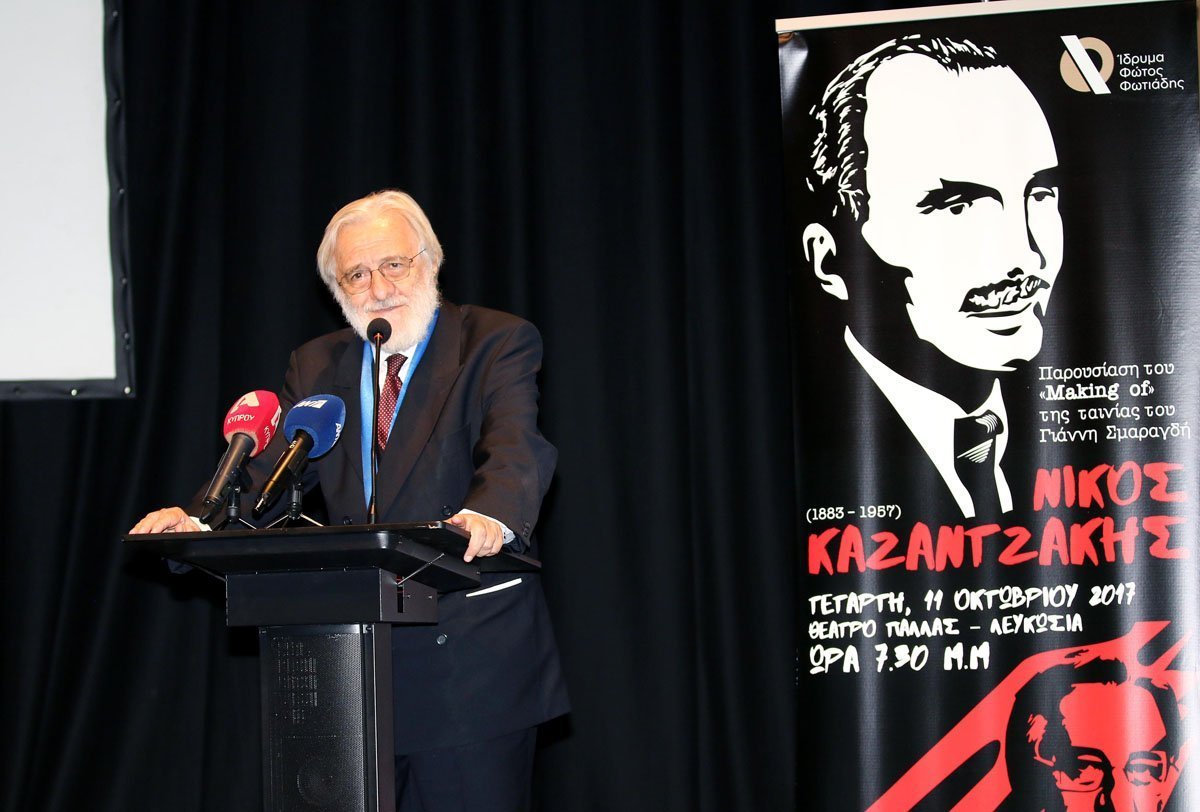
An event in honour of distinguished director Yiannis Smaragdis.
The Foundation has also established the Cyprus Museum of Natural History, which contributes to a greater awareness of the public on the flora, fauna and geological make up of our country. The Museum boasts more than 2500 exhibits, including embalmed mammals, birds, fish, reptiles and insects, as well as various kinds of rock, minerals, semi-precious stones, fossils and shells.
They are presented thematically, classified by ecosystem type
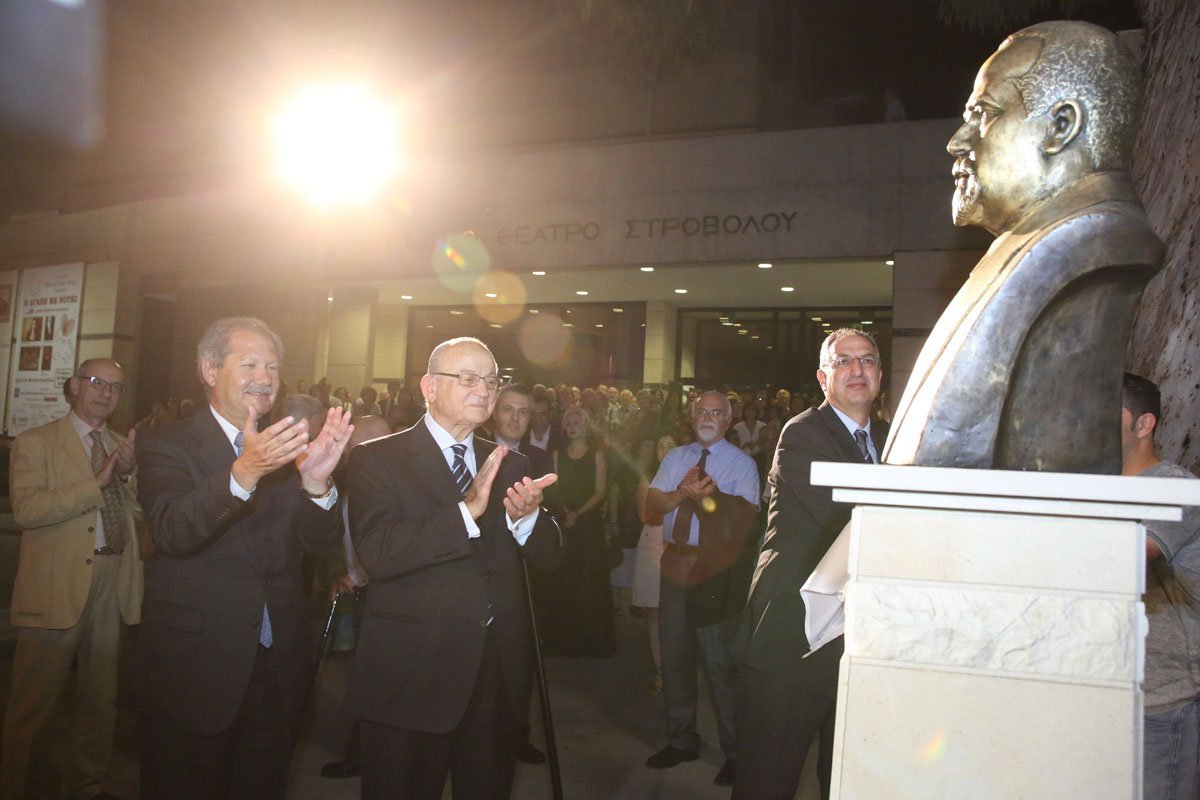
Τhe unveiling of a Dimitris Lipertis bust at Strovolos Municipality.
As the Group notes, ‘a visit to the Museum can certainly spark a more in-depth look at the country’s natural environment and a love of our surroundings, which will in turn contribute to cultivating environmental conscience and the collective effort to protect the environment.
Address.
Photos Photiades Group
Photos Photiades Business Centre
8 Stassinos Avenue, 6th Floor
1060 Nicosia
Cyprus
P.O. Box 22391
1521 Nicosia
Cyprus
Telephone.
+357 22 452000
Fax.
+357 22 452001
